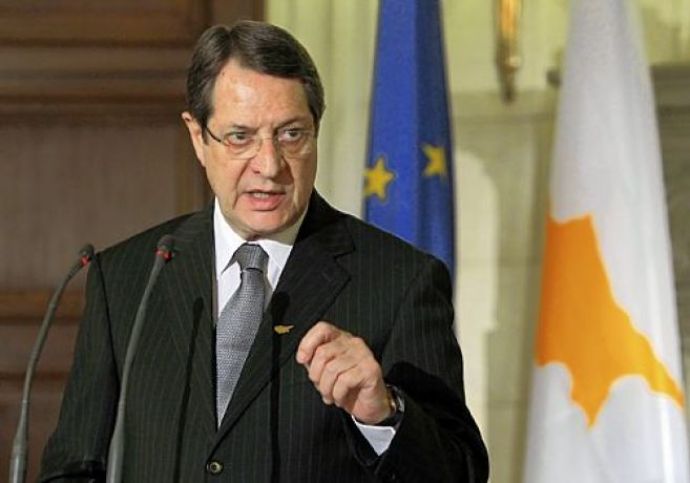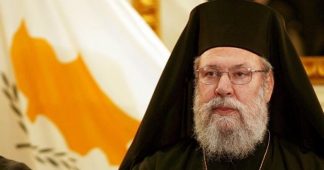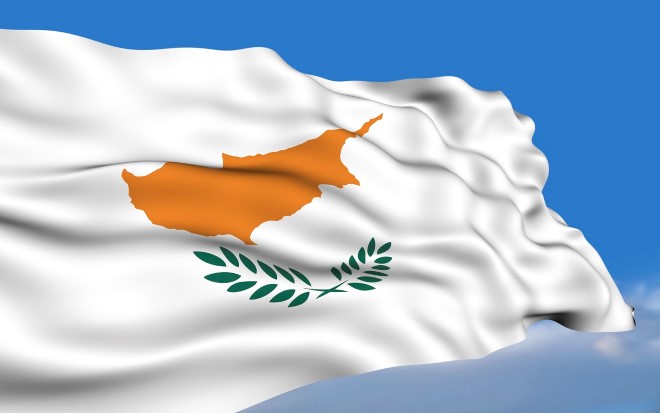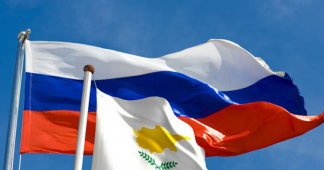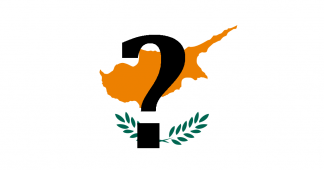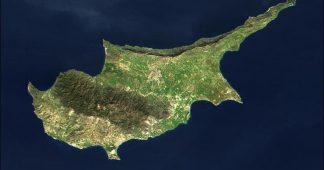AC
London
BBC Complaints
PO Box 1922
Darlington
DL3 0UR
17 January 2017
Dear Sir or Madam,
It is with regret that I find myself writing to the BBC once again on the topic of Cyprus.
Despite a plethora of complaints from myself and others in the British Cypriot community during 2016, it would appear that the BBC has taken no notice and continues to misrepresent the facts of the Cyprus situation.
 I implore the BBC to properly research and report on the Cyprus issue in an honest and factual manner that does not cause myself, my family and the Cypriot community distress.
I implore the BBC to properly research and report on the Cyprus issue in an honest and factual manner that does not cause myself, my family and the Cypriot community distress.
During the recent Cyprus talks in Geneva, the BBC continually relayed incorrect information and reported dishonestly regarding the current state of affairs on the island and its recent history. For the avoidance of doubt, the only legal government in Cyprus is the Republic of Cyprus, which was illegally invaded and occupied in 1974 by Turkey. The northern 38% of the island was ethnically and culturally cleansed and 200,000 Greek Cypriots (according to the UNHCR) were forced to flee. These are elementary facts which are accepted by the UK government and all other governments around the world except Turkey.
The BBC’s report in the occupied area by Selin Girit, which appeared on Newsnight and online, made reference to ‘Turkish Cyprus’ and ‘Greek Cyprus’. As I note above, the only legal government on the island is the Republic of Cyprus and the area you erroneously refer to as ‘Turkish Cyprus’ is deemed an illegal occupation (see UN Security Council Resolutions UN Security Council Resolution 541 and UN Security Council Resolution 550). In the subsequent Newsnight discussion a Turkish Cypriot representative was labelled on screen as a ‘representative of the Turkish Republic of Northern Cyprus in London’. The UK does not recognise the so-called ‘TRNC’, and in doing so, the BBC legitimises the illegal invasion and occupation of the Republic of Cyprus.
Journalist Naga Munchetty then went on to summarise the Cyprus dispute by explaining that ‘Greece wants its territory increased and that would mean that Turkey’s portion of land would be diminished’. This is a shocking claim, showing complete disregard for the facts of the situation and a lack of preparation/knowledge on matters pertaining to Cyprus. The Republic of Cyprus is an independent nation and its territory is not split between Greece and Turkey; though the latter nation occupies the island with 40,000 troops. The BBC report on Newsnight was introduced by a Turkish journalist and only included representatives of the illegal regime in the north of Cyprus.
Whilst I acknowledge that the BBC were unable to source a representative from the Cypriot government, did it not think to invite a nongovernmental representative from the Greek Cypriot side as it did with the Turkish Cypriot side? For Greek Cypriots the Newsnight report and subsequent interview shows a complete lack of impartiality.
On 13 January, I was even more disheartened when the BBC reported on its news channel that ‘President Tayyip Erdogan has vowed not to remove Turkish troops from Cyprus until Greece removes there’s. Cyprus has been split between Greece and Turkey since 1974.’ This statement reaffirmed the dishonest statements made by the BBC in the preceding days. As Elaine Tofaris explained on the Victoria Derbyshire show on 12 January, there is a concerted effort by some of the British media (including the BBC) to portray 1974 as a friendly division of Cyprus between Greece and Turkey – this is not the case.
From a personal perspective, the consistent misrepresentation of the facts on Cyprus by the BBC causes me and my family much anguish. In 1974, as a result of the Turkish invasion, my entire family were forced to flee the beautiful town of Kyrenia. This was our ancestral home where our families had resided for hundreds of years. During the bloody Turkish invasion family members were murdered by the Turkish army and forced to flee with the bare essentials. They have never been allowed to return to their properties and instead live as refugees all over the world. Our homes have been confiscated by mainland Turkish colonizers; sent after the invasion to boost the population of the illegal regime in the north. My father’s land has been turned into a large military barracks to house some of the 40,000 Turkish troops who occupy the island.
The churches my family once frequented have been turned into mosques, barns, hotels or simply have been left to ruin. The graves of my ancestors have been desecrated to remove their presence. The towns, villages and street names of the occupied area have been changed to eradicate the trace of their former Greek Cypriot owners.
Cyprus, therefore, was not merely ‘divided between Greeks and Turks’ in 1974, it was brutally invaded, and then ethnically and culturally cleansed. The BBC is helping to rewrite the history of Cyprus by refusing to report the facts of the situation. The BBC does injustice to a multitude of UN resolutions which condemn the illegal invasion, occupation and colonisation of the Republic of Cyprus, and I hope that the BBC understands the distress this causes British Cypriots.
The BBC, on its website, explains that ‘the BBC’s Charter and Agreement requires BBC journalism to be impartial. The way the BBC does this differentiates it from other news sources and is part of the contract with audiences. BBC editors talk about viewing a story from all angles.’ I ask the BBC, therefore, to uphold the Charter and Agreement with regards to matters pertaining to Cyprus. I hope that this will be the last time I have to complain about the BBC’s commentary on these matters; though given the lack of response to prior complaints, I understand that factual journalism with regard to Cyprus is not a priority.
I look forward to your response and subsequent corrections.
Yours sincerely,
AC
